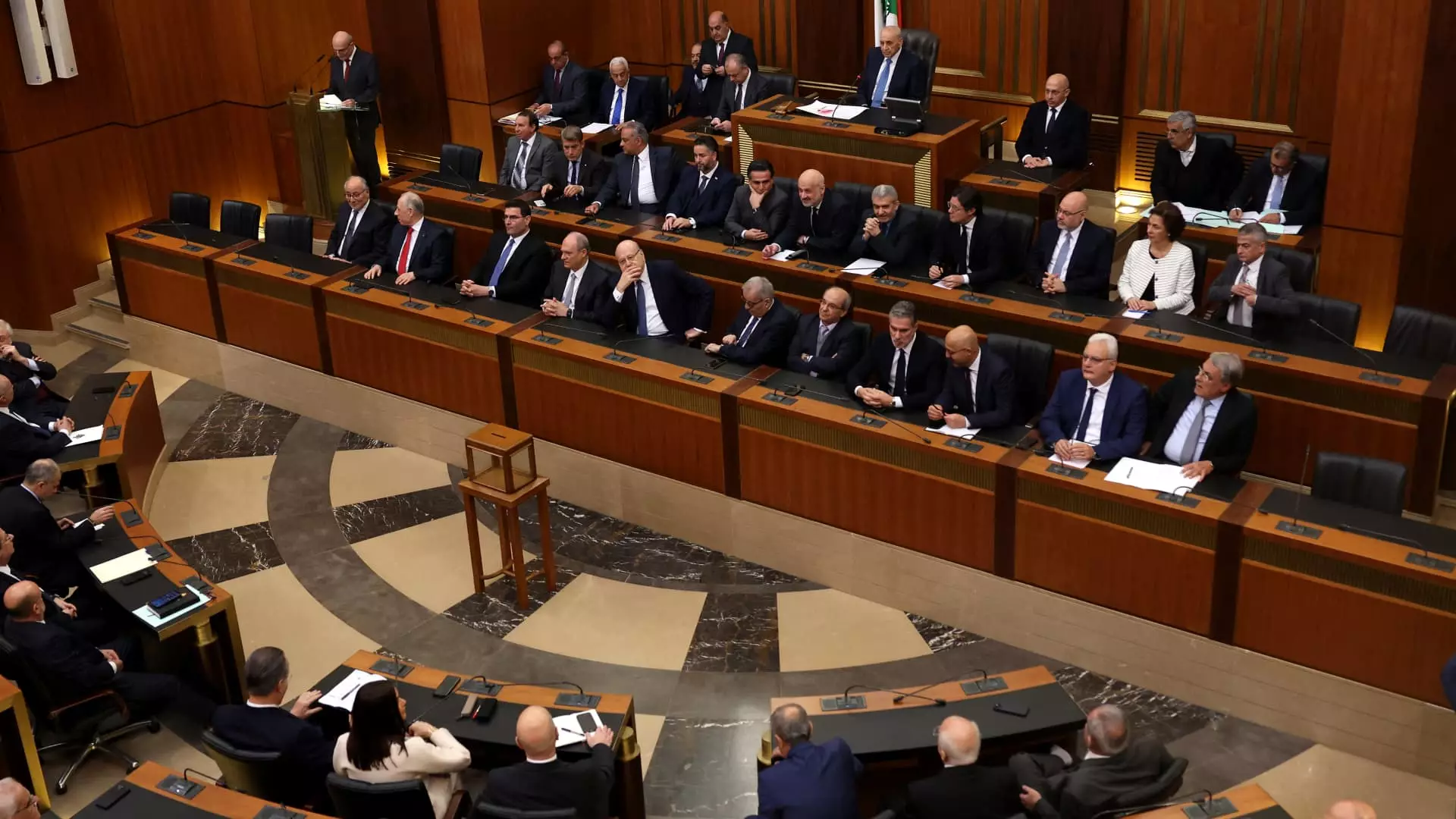On Thursday, Lebanon’s parliament made a significant political decision by electing Army Chief Joseph Aoun as the new head of state. This landmark event not only filled the long-vacant presidential position but also highlights the rapidly changing balance of power within Lebanon and its broader regional context. The election signifies a pivotal moment for the country, traditionally divided along sectarian lines, as it navigates the aftermath of a lengthy conflict involving Israel and the influential Iran-backed Hezbollah group.
This electoral outcome demonstrates the diminishing power of Hezbollah, which faced severe repercussions following last year’s war. The organization, once a considerable force in Lebanese politics, is now grappling with diminished resources and support, particularly as its close ally, Syrian President Bashar al-Assad, saw his influence wane in Lebanon. This shift could be interpreted as an essential move towards restructuring Lebanon’s political realm, previously heavily swayed by Iranian and Hezbollah interests.
Joseph Aoun’s election reflects not just a personal victory for the army commander but also indicates vital international backing from the United States. The support from U.S. diplomats emphasizes a broader strategy aimed at reinforcing state institutions in Lebanon, aiming to weaken Hezbollah’s influence and bolster the Lebanese army as a key player in national security and political stability. This transition is crucial as Lebanon continues to grapple with a crippling economic crisis first initiated in 2019, which has left the country in dire need of international assistance.
The election process was not without its challenges. Aoun initially faced resistance, only securing enough votes after Hezbollah’s favored candidate, Suleiman Frangieh, withdrew his candidacy in what could be seen as a pragmatic move. The shift in support may indicate a strategic recalibration within Hezbollah, recognizing the need to align with prevailing international expectations. The subsequent mobilization of French and Saudi envoys underscored international interest in Lebanon’s stability, piquing hopes for renewed cooperation and financial aid.
Significantly, Aoun’s election opens avenues for international dialogue, crucial for Lebanon to secure essential funding necessary for reconstruction and recovery. Observers noted that Aoun’s election appeared contingent upon certain promises from the international community, particularly regarding monetary assistance. This assistance is perceived as being contingent on the establishment of a functioning government, reflecting a broader international expectation that Lebanon must make significant political strides before outside support materializes.
Moreover, Aoun has committed to addressing Lebanon’s multifaceted challenges and rebuilding vital state institutions that have faltered since Michel Aoun vacated the presidency in October 2022. The imperative for stability and unity will require Joseph Aoun to navigate a complex political landscape marked by deep sectarian divides, with factions often embroiled in intense political negotiations regarding appointments and emergency governance.
The Path Forward
Critics and supporters alike will be observing closely how Aoun tackles the severe challenges ahead, particularly the need to establish a new government and nominate a Sunni prime minister, with the Lebanese political framework often resulting in protracted deliberations. Key to Aoun’s strategy will be fostering unity among Lebanon’s diverse political factions while addressing pressing economic issues that have led to widespread discontent among citizens.
Furthermore, Aoun’s leadership will be scrutinized in the context of maintaining security, especially given the fragile ceasefire between Hezbollah and Israel, negotiated through the diplomatic channels of Washington and Paris. This highlights the intricate ties between internal governance and regional security dynamics, where Aoun’s role is pivotal in ensuring peace while simultaneously rebuilding national trust in state institutions.
Joseph Aoun’s elevation to the presidency marks a significant step in Lebanon’s quest for political stability and international support amid a shifting geopolitical landscape. Whether this will translate into effective governance and economic recovery remains to be seen, but the initial signs suggest a potentially transformative period for the Lebanese people.

Leave a Reply